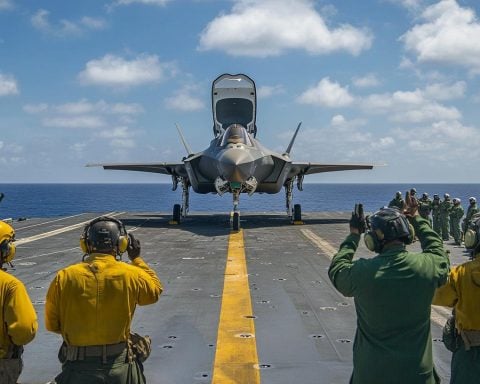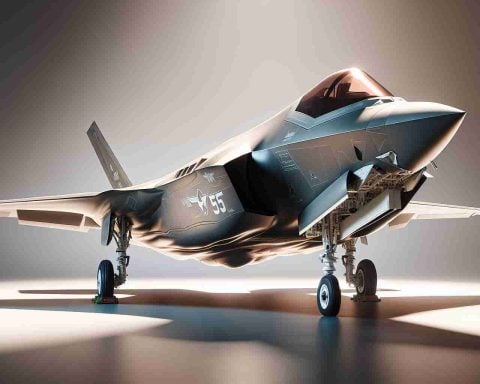Exploring New Horizons in Military Aviation Maintenance
The military aviation Maintenance, Repair, and Overhaul (MRO) market is undergoing significant transformation, fueled by increasing global demand. With growing military aircraft fleets and soaring defense budgets, nations are investing heavily in cutting-edge MRO services to ensure their aircraft remain mission-capable.
Meeting the Challenges of Modern Warfare
Military aircraft are rapidly evolving with complex systems that require specialized maintenance to stay operational. As these fleets age and new aircraft enter service, there’s a persistent need for comprehensive MRO solutions. Global geopolitical tensions have led to heightened defense spending, driving innovation and expansion in the MRO industry.
Adapting to Technological Advancements
With the integration of advanced electronics and high-tech armaments, military aviation demands sophisticated maintenance strategies. Providers must embrace emerging technologies like predictive maintenance and digital tools to enhance service quality and efficiency. This technological shift makes it essential for MRO providers to invest in workforce training to meet the future demands of this dynamic sector.
Opportunities for Industry Players
Leading manufacturers, including giants like Lockheed Martin, Boeing, and Airbus, are capitalizing on these developments. As defense expenditure rises, MRO providers are strategically positioned to offer innovative solutions, ensuring fleets across the globe remain ready to face new threats. The military aviation MRO market promises lucrative opportunities for growth and adaptation in an ever-changing defense landscape.
How AI and Cybersecurity are Revolutionizing Military Aviation Maintenance
An Intersection of Technology and Military Necessity
While the need for advanced Military Aviation Maintenance, Repair, and Overhaul (MRO) services is growing, an intriguing trend is the increasing reliance on Artificial Intelligence (AI) and robust cybersecurity measures. As defense systems become more complex, there’s a crucial need to protect them from cyber threats while optimizing operations through AI-driven processes. These technological innovations are set to redefine the future of military aviation maintenance and beyond, stretching into broader applications for the development of new technologies.
Advancements: A Deeper Dive
AI is playing a pivotal role in transforming maintenance practices. Predictive analytics, powered by machine learning, allows for anticipatory measures that drastically reduce downtime and costs by predicting potential failures before they occur. This not only ensures aircraft availability but also enhances mission success rates by preventing unexpected technical failures.
On the cybersecurity front, military aircraft now rely heavily on complex software systems, making them vulnerable to cyberattacks. The integration of cybersecurity protocols in MRO activities is not just about preventing data breaches but also about safeguarding the integrity of weapon and communication systems.
Advantages and Disadvantages: Balancing the Scales
The integration of AI in military MRO introduces a realm of advantages. Advantages include improved safety, increased efficiency, and the potential cost reductions associated with predictive maintenance. However, disadvantages include the initial high costs of implementing AI technology, potential over-reliance on automated systems, and the skill gap in current personnel that necessitates significant retraining.
Cybersecurity measures, on the other hand, offer advantages such as strengthened defense against cyber threats and enhanced security for military data. Yet, they also present challenges, including staying ahead of rapidly evolving cyber threats and the complexity of integrating these solutions into existing MRO frameworks.
Is the Investment Worth It?
The question arises: Are these technological investments justified given the fluctuating nature of geopolitical landscapes? The answer lies in the necessity. With military strategies increasingly reliant on sophisticated aircraft, the importance of robust MRO systems equipped with AI and cybersecurity is undeniable. This not only ensures a country’s defense readiness but contributes to technological evolution that can spill over into civilian applications, fostering overall technological growth.
Potential Ethical and Controversial Discussions
One interesting aspect is the ethical implications of AI in military aircraft maintenance. Questions surrounding machine error, accountability, and the limits of automation remain unresolved. As these technologies advance, there’s a looming debate on finding the right balance between human oversight and machine autonomy.
Additionally, cybersecurity raises discussions about surveillance, data privacy, and the potential for abuse if these systems fall into the wrong hands.
In conclusion, while challenges and controversies exist, the potential benefits in the military’s MRO sector represent a monumental step forward for both national defense and human technological progress.
For more insights into AI and cybersecurity advancements:


















